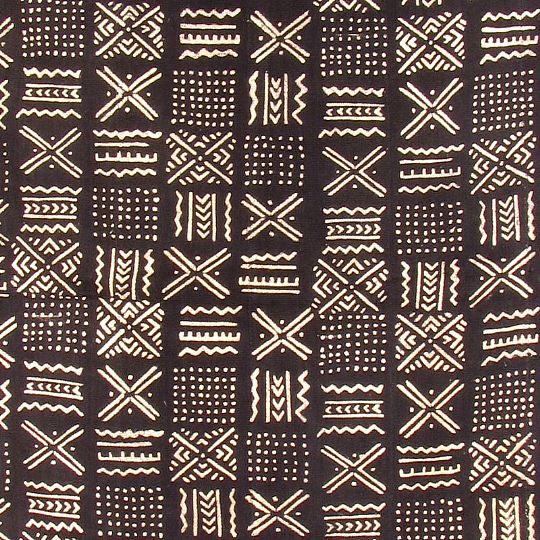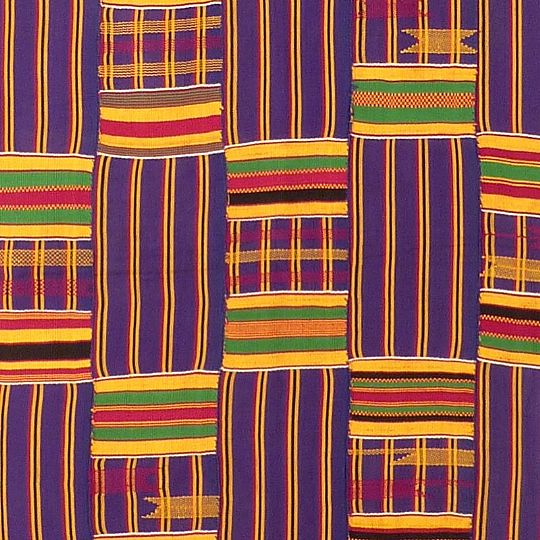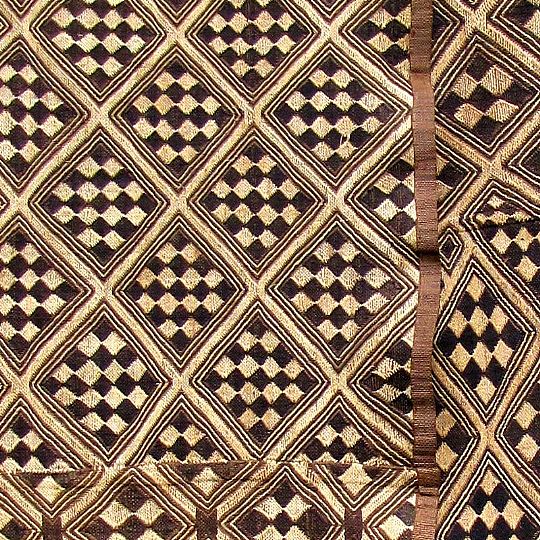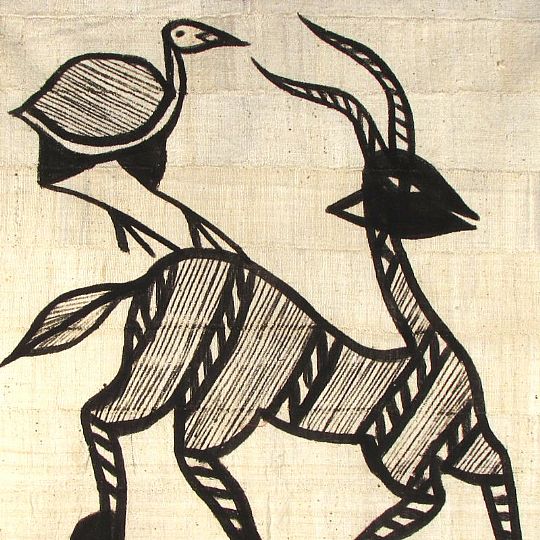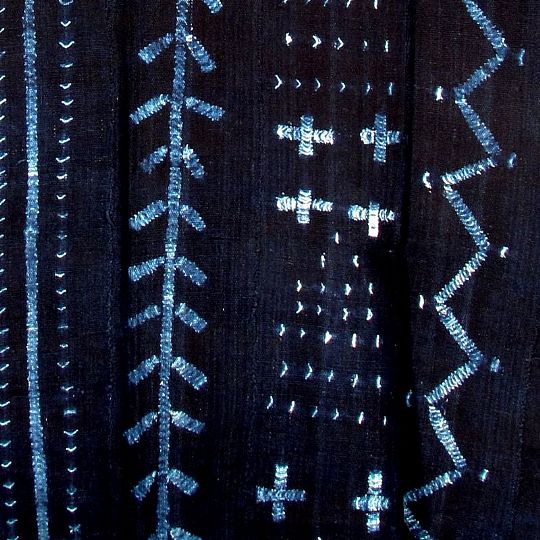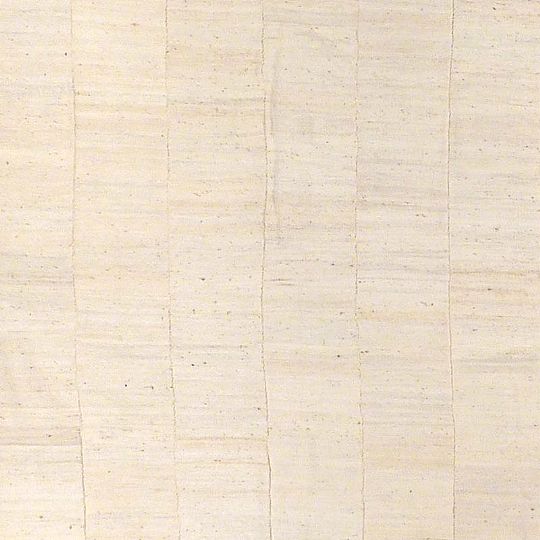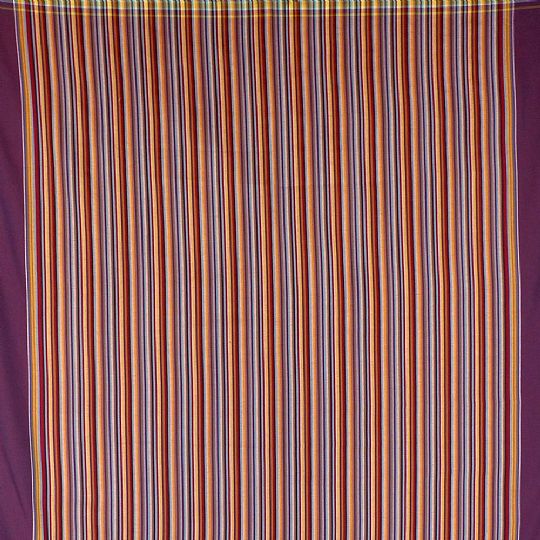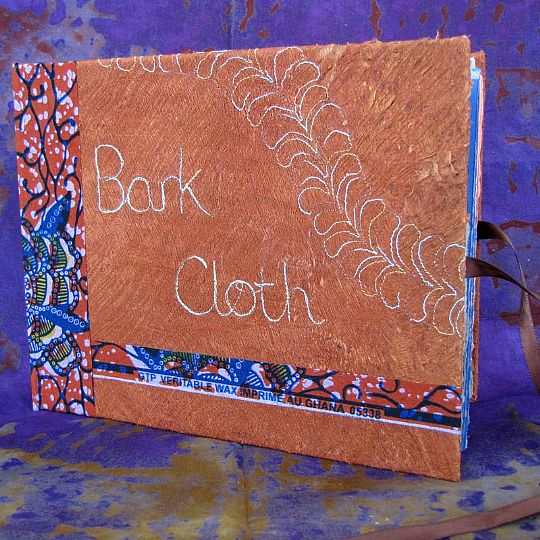African textiles at an affordable price
Africa's textile traditions - the sorts of cloths we instantly identify with Africa - are as numerous as they are beautiful. Visit the British Museum or the Smithsonian Institute and you'll understand what we mean.
Alternatively, browse our website for a taste of what these cloths are all about.
We don't generally deal in extremely large and expensive pieces: so-called 'collectables'. That's a very specialised area.
What we do have is a varied and interesting selection of excellent quality African textiles at the more affordable end of the spectrum.
If you're looking for a striking wallhanging, table cloth, table runner, bed cover or throw - that sort of thing - you might find it here at The African Fabric Shop.
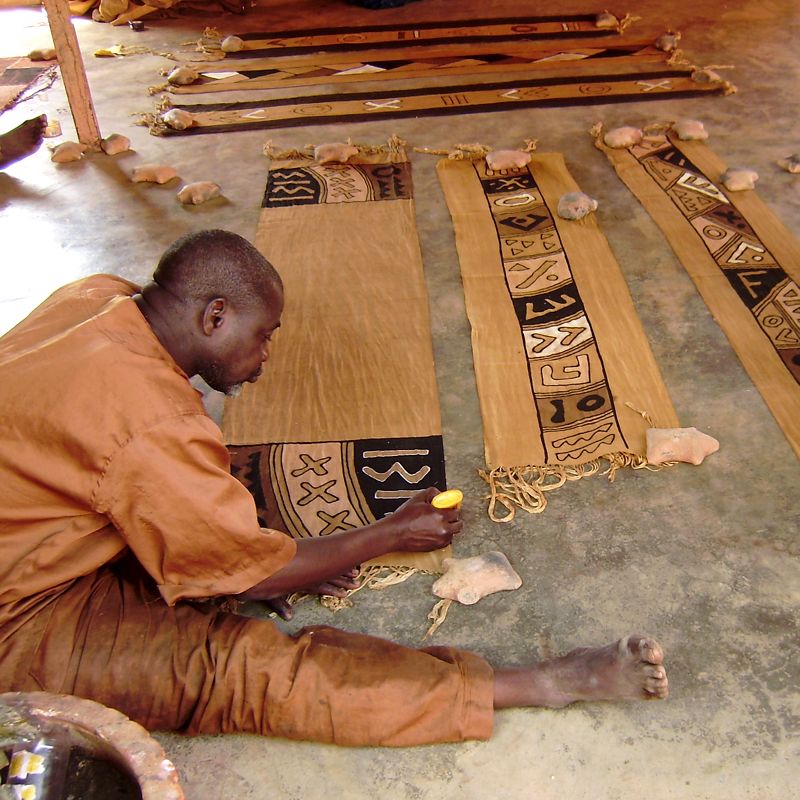 Mud cloth studio of Boubacar Doumbia: Segou, Mali
Mud cloth studio of Boubacar Doumbia: Segou, MaliMud Cloth / Bogolan
Mud cloth is one of Africa's most unusual and unique textiles.
Narrow strips of handwoven cotton are stitched together into a whole cloth, then painted with patterns and symbols using a variety of natural dyes, including river mud that has been aged up to one year.
All cloths are 100% cotton.
Each cloth is a unique creation: there is only one.
Vintage & Collectable African Textiles
Sometimes on our travels to villages and markets across Africa, we discover some really special and unusual textiles - many of them unique and collectable, some of them quite old. We're not talking about 'museum textiles' here: just excellent, interesting and significant African textiles at an affordable price.
Kuba Cloth
Kuba cloth from The Congo is handwoven using the strands from raffia palm leaves. The raffia strands are dyed in a variety of earth tones using vegetable dyes.
There are two main types of Kuba cloth: cut pile cloths and flat woven cloths with no pile.
Kuba cloths display a variety of interesting features including patchwork, embroidery, appliqué and embellishments.
Each cloth is a unique creation.
Korhogo Cloths
Our striking, picturesque Korhogo cloths are ideal as wallhangings.
If you're a creative stitcher, you can use Korhogo to make your own fashion items, such as jackets, coats, waistcoats, bags, etc.
All cloths are handwoven 100% cotton.
Indigo Cloths
Our indigo damask cloths are from Guinea. They're handstitched to create a resist pattern, then hand-dyed in indigo.
Our plain and stitch resist indigo cloths are from Mali. They're made of narrow, handwoven strips which are sewn together to make a whole cloth, then hand-dyed in indigo.
All cloths are 100% cotton.
In most cases each cloth is a unique creation: there is only one.
Undyed African Textiles
If you're looking for undyed cotton that you can dye yourself, look no further than our collection of undyed African textiles: from large blankets to scarves to handwoven strip cloth.
Kenyan Kikoy
The kikoy began life as the traditional man's wrap-around worn on the Swahili coast of East Africa, especially Kenya.
Today, it's evolved as a woman's wrapper as well. They are so soft, colourful and vibrant that you can find other great uses, such as: beach wrap, beach or picnic blanket, scarf, shawl, table cloth, table runner, wallhanging, or - use your imagination!
All cloths are 100% cotton.
Bark Cloth
Bark cloth - one of the first primitive fabrics made in tropical Africa - is still produced by the Baganda people near Lake Victoria.
You can use bark cloth as a creative medium in all sorts of textile art projects, exploiting a variety of techniques: embroidery, patchwork and quilting, embellishing, painting, printing, dyeing and stamping.
Why not see how creative you can be?
- Fabrics & Textiles
- African Fabrics by the metre
- Special Collection African Fabrics
- Hand-dyed African Batiks
- Hand-dyed African Tie-dye
- African Wax Prints
- African Wax Print Indigos
- Langa Lapu South African Sun Prints
- Shwe Shwe Indigos
- Shwe Shwe Colours
- Kudhinda Zimbabwe Screen Prints
- Kola & Indigo Hand-dyes
- Indigo Hand-dyes
- Handwoven Strip Cloth
- Unique & Decorative African Textiles
- Mud Cloth / Bogolan
- Vintage & Collectable African Textiles
- Kuba Cloth
- Korhogo Cloths
- Indigo Cloths
- Undyed African Textiles
- Kenyan Kikoy
- Bark Cloth
